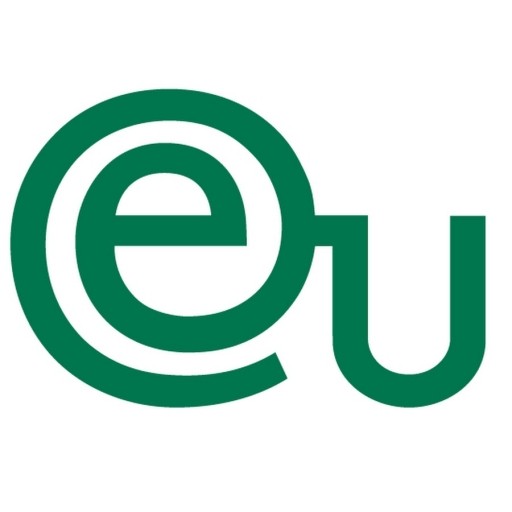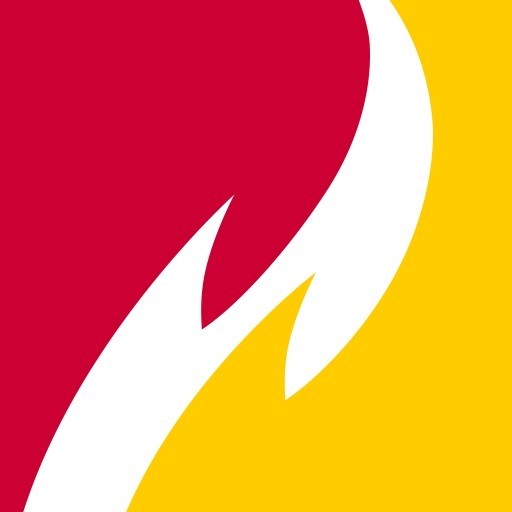The I.A.S. Pharmacy — Medical Biochemistry program at European University offers a comprehensive education designed to prepare students for a successful career in the field of biomedical sciences. This interdisciplinary program combines fundamental principles of chemistry, biology, and medicine to provide a deep understanding of the biochemical processes that underpin health and disease. Throughout the course of study, students will engage with a wide range of topics including molecular biology, enzymology, immunology, genetics, and clinical biochemistry. The curriculum emphasizes both theoretical knowledge and practical laboratory skills, enabling students to analyze biological samples, interpret biochemical data, and develop diagnostic and therapeutic approaches to various medical conditions.
Students will benefit from instruction provided by experienced faculty, cutting-edge laboratory facilities, and internship opportunities within healthcare institutions. The program aims to develop critical thinking, problem-solving, and research abilities, preparing graduates to work in clinical laboratories, research institutes, pharmaceutical companies, and healthcare organizations. In addition, the program focuses on fostering ethical awareness and a commitment to scientific integrity that is essential in the medical sciences. Graduates of this program will be equipped to contribute to advances in medical diagnostics, personalized medicine, and biomedical research. The I.A.S. Pharmacy — Medical Biochemistry program reflects European standards of higher education, ensuring students receive a quality education that meets international demands and standards, opening pathways for further specialization or advanced studies in related fields.
I YEAR
- Farmaceutski engleski jezik
- Biofizika
- Biologija sa humanom genetikom
- Anatomija
- Opta hemija
- Organska hemija
- Statistika u farmaciji
- Histologija
- Bioorganska hemija
- Neorganska hemija
- Fizicka hemija
- Analiticka hemija I
- Uvod u medicinsku biohemiju
- Organska analiza
II YEAR
- Analiticka hemija II
- Instrumentalna farmaceutska analiza
- Molekularna biologija ´celije
- Opta biohemija I
- Imunologija
- Fiziologija I
- Farmaceutska neorganska hemija
- Farmaceutska organska hemija
- Opta biohemija II
- Fiziologija II
- Medicinski engleski jezik
- Mikrobiologija
- Bromatologija
- Izborni blok 1
III YEAR
- Neuronauke
- Patofiziologija
- Medicinska biohemija I
- Farmakologija
- Imunohemija
- Izborni blok 2
- Izborni blok 3
- Medicinska biohemija II
- Neurofarmakologija
- Dijetetika
- Kontrola zdravstvene ispravnosti namirnica I
- Izborni blok 4
- Izborni blok 5
IV YEAR
- Farmakokinetika sa farmakodinamikom
- Endokrinologija
- Kontrola zdravstvene ispravnosti namirnica II
- Klinicka biohemija sa molekularnom dijagnostikom I
- Izborni blok 6
- Izborni blok 7
- Toksikologija sa analitikom
- Klinicka biohemija sa molekularnom dijagnostikom II
- Hematologija
- Medicinska etika
- Izborni blok 8
- Izborni blok 9
V YEAR
- Interakcije i neeljeni efekti lekova
- Klinicka enzimologija
- Klinicko-toksikoloke analize
- Izborni blok 10
- Izborni blok 11
- Izborni blok 12
- Studijski istraivacki rad
- Diplomski rad
- Strucna praksa
ELECTIVE
- Analitika sportskih suplemenata
- Heterocklicna fizioloki aktivna jedinjenja
- Koloidni sistemi u farmaciji
- Menadment u zdravstvu i farmaciji
- Mehanizmi ´celijske komunikacije
- Klinicka mikrobiologija
- Kontrola kvaliteta u farmaceutskoj industriji
- Etika u predklinickim i klinickim istraivanjima
- Organizacija zdravstvene delatnosti
- Molekularna patologija
- Nanohemija u farmaciji
- Dijetetska hrana i dijetetski suplementi
- Molekularna onkologija
- Poslovni engleski jezik
- Reproduktivna endokrinologija
- Slobodni radikali i antioksidansi - laboratorijska dijagnostika
- Ekotoksikologija
- Zavisnost i zloupotreba lekova
- Laboratorijska statistika sa obradom podataka
- Genotoksikologija
- Laboratorijski menadment i dobra laboratorijska praksa
- Farmaceutski preparati u forenzici
- Bioterorizam
- Klinicka endokrinologija
Program requirements for I.A.S. Pharmacy — Medical Biochemistry at European University typically include a combination of academic prerequisites, language proficiency, and specific application procedures. Applicants are usually required to have completed secondary education with a strong background in sciences such as chemistry, biology, and mathematics to ensure they have the foundational knowledge necessary for success in the program. proficiency in English is essential, with applicants often required to submit standardized test scores such as TOEFL or IELTS to demonstrate their language skills, especially since lectures and coursework are conducted in English.
The application process generally involves submitting an online application form along with certified copies of academic transcripts, a motivation letter, a CV, and possibly letters of recommendation. There may be an entrance exam or interview stage designed to assess the applicant's motivation, comprehension of scientific principles, and suitability for the program. Additionally, for international students, a valid passport, visa documentation, and proof of health insurance are mandatory.
Throughout the program, students are expected to complete a set curriculum that includes courses in human anatomy, biochemistry, pharmacology, microbiology, and clinical research methodology. Laboratory work and practical training are essential components, requiring students to demonstrate technical skills and understanding of laboratory safety protocols. To graduate, students must pass all coursework, complete internships or practical placements, and successfully defend a final thesis or research project.
It is recommended that applicants review specific admission deadlines and requirements listed on the European University official website, as these can vary each academic year. Prospective students are also encouraged to contact the admissions office for personalized guidance or additional information regarding prerequisites, application procedures, or scholarship opportunities. Overall, the program aims to prepare graduates for careers in medical research, pharmaceutical industry, or healthcare settings through rigorous academic training combined with practical experience.
Funding options for the I.A.S. Pharmacy — Medical Biochemistry program at European University include a variety of financial aid opportunities designed to support students throughout their academic journey. The university offers scholarships based on academic excellence, which are awarded to outstanding students upon admission or during their studies. These scholarships may cover partial or full tuition fees and are granted annually, contingent upon maintaining a specified academic performance. Additionally, European University provides grants and sponsorship programs for students demonstrating financial need, aiming to make education accessible to a broader range of applicants.
Students can also explore government-funded student loans and financial assistance programs available in their home countries, which may cover tuition and living expenses related to studying at European University. The university encourages applicants to consult its financial aid office to obtain detailed information on eligibility criteria and application procedures for these financial support options. Furthermore, European University partners with various funding entities and organizations that offer external scholarships and sponsorships, which students can apply for based on their academic achievements, field of study, or demographic criteria.
International students are also advised to seek external funding sources available in their respective countries, as many governments and private foundations provide scholarships for students studying abroad. The university’s administrative team guides prospective and current students on navigating the application processes for these opportunities to maximize their chances of receiving financial aid. Moreover, flexible payment plans may be available, allowing students to pay tuition fees in installments, thereby alleviating financial burdens. Overall, European University is committed to supporting its students financially through a combination of internal scholarships, external grants, governmental assistance programs, and flexible payment options to ensure that pursuing a degree in Medical Biochemistry is financially feasible for qualified candidates.
The I.A.S. Pharmacy — Medical Biochemistry program at the European University is designed to equip students with in-depth knowledge and practical skills in the field of medical biochemistry, specializing within the wider context of pharmacy studies. The program aims to prepare graduates for professional activities in medical laboratories, research institutions, and healthcare facilities, where they can apply biochemical and molecular biology techniques to diagnose, prevent, and treat various diseases. The curriculum typically includes courses in general and organic chemistry, biochemistry, molecular biology, cell biology, physiology, and pathology, among others. Students also gain expertise in laboratory techniques, biochemical analysis, and modern diagnostic methods, which are essential for working in clinical and research environments.
Throughout the program, emphasis is placed on developing analytical thinking, precision, and an understanding of complex biological systems. The program often involves practical laboratory work, internships, and research projects that allow students to apply theoretical knowledge to real-world scenarios. Training in scientific research methods and data analysis is also included to prepare students for potential careers in research and development. The program's structure aligns with European standards for higher education in health sciences, ensuring graduates meet the qualifications necessary for professional recognition and mobility across European countries.
Graduates of the I.A.S. Pharmacy — Medical Biochemistry program may find employment opportunities in hospital laboratories, pharmaceutical companies, biotech firms, research institutes, and academia. The program also provides a solid foundation for those wishing to pursue postgraduate studies or specialization in fields such as clinical biochemistry, molecular diagnostics, or pharmacology. The European University emphasizes a student-centered approach, integrating modern educational technologies and fostering an environment of innovation and scientific inquiry. This comprehensive training enables students to contribute meaningfully to advancements in healthcare and biomedical sciences, fulfilling the growing demand for qualified medical biochemists in the global healthcare system.









